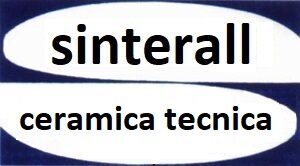Silicon carbide, characterized by the chemical formula SiC, is the hardest ceramic material and at the same time one of the lightest. It has interesting properties so much that it is increasingly requested in the most varied industrial applications, used with satisfaction in many sectors: electronics, textiles, mechanics, food, automotive, aerospace, metallurgy, petrochemicals offering also economic solutions in the face of significant increases in duration and performance.
At room temperature it appears as an odorless black solid.
The fields of use of silicon carbide are many, thanks to a series of chemical-physical properties that make this material suitable for various applications. In particular, its high thermal conductivity combined with a low linear expansion coefficient and its remarkable mechanical characteristics make this material exceptional in terms of thermal shock resistance.
The main characteristics of silicon carbide are:
- low density
- excellent degree of hardness close to diamond
- excellent corrosion resistance in both acidic and alkaline environments
- excellent wear resistance: the life of a component made of this ceramic material is approximately 12-15 times longer (in the same conditions of use) than the same component made of treated steel
- excellent thermal shock resistance, low thermal expansion, high thermal conductivity
- properties of semiconductors
- chemically inert usable for food / pharmaceutical applications
Ceramic materials based on silicon carbide (SiC) belong to the most advanced ceramics. Depending on the manufacturing process and the type of bond they differ in:
SINTERED SILICON CARBIDE (SSiC)
Sintered silicon carbide is obtained from the finest SiC powder plus sintering additives and is sintered at a temperature of 2000 up to 2200 °C in a controlled atmosphere.
Its main features are:
- extremely high resistance to corrosion
- high resistance to thermal shocks, high thermal conductivity
- wear resistance and hardness similar to diamond
TECHNICAL DATA SHEET: SILICON CARBIDE
SILICON CARBIDE INFILTRATED SILICON ALLOY FOR REACTION (SiSiC)
SiSiC is made of SiC for its 85 – 94% and 15-6% of metallic silicon. During the sintering process there is no shrinkage due to the production of the composites. This is why large components can be made. The application temperature is limited to approx. 1380 °C due to the share of metallic silicon.
Its main characteristics are:
- high resistance to corrosion and wear
- excellent resistance to thermal shock, high thermal conductivity
RECRYSTALLIZED SILICON CARBIDE (RSiC)
RSiC is a pure SiC material with open porosity between 11 and 15%. Compared to dense SiC ceramics, it has a lower resistance but an outstanding thermal shock resistance. The lack of shrinkage during the thermal process makes possible the making of components of big dimensions which are mainly used as mobile supports in thermal processes. The maximum temperature during application is between 1600 and 1650°C.
Its main characteristics are:
- excellent resistance to thermal shock
- high load capacity
